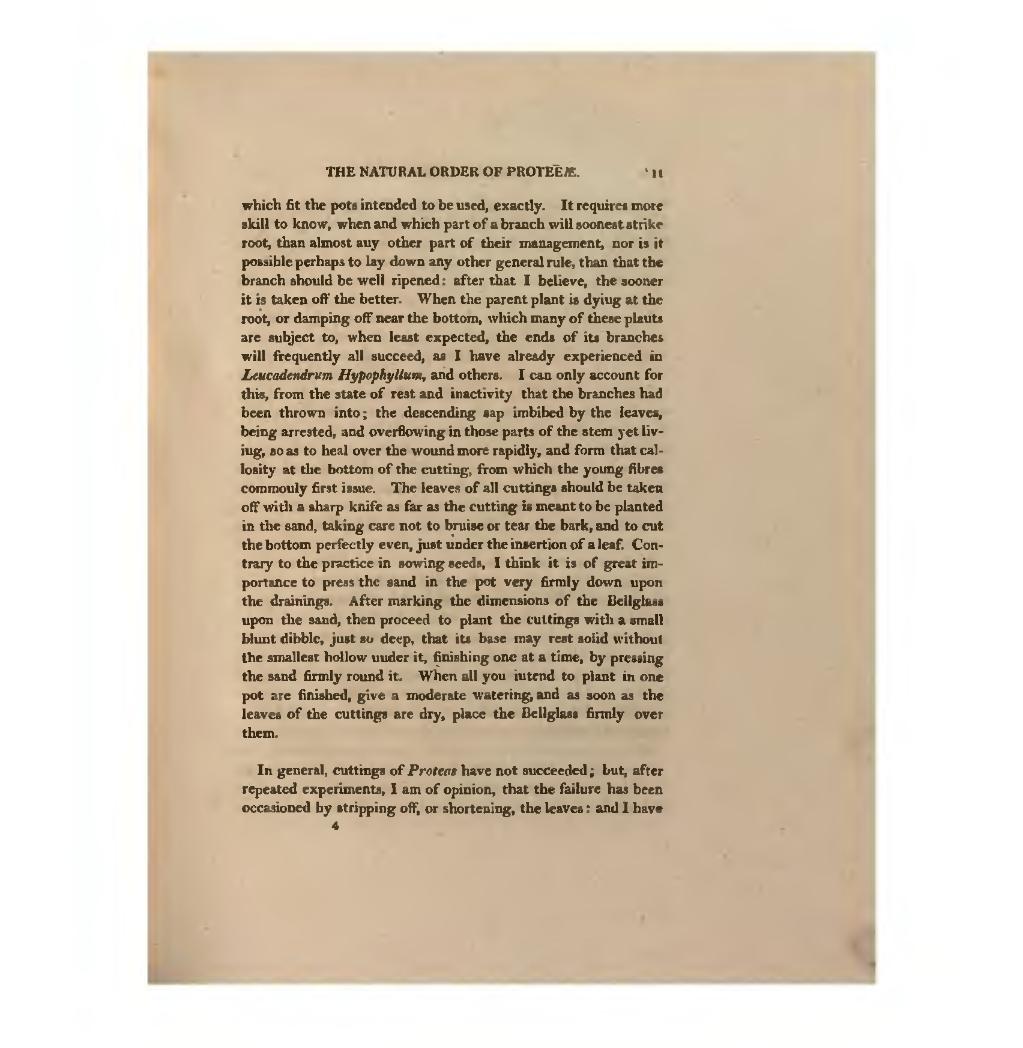which fit the pots intended to be used, exactly. It requires more skill to know, when and which part of a branch will soonest strike root, than almost any other part of their management, nor is it possible perhaps to lay down any other general rule, than that the branch should be well ripened: after that I believe, the sooner it is taken off the better. When the parent plant is dying at the root, or damping off near the bottom, which many of these plants are subject to, when least expected, the ends of its branches will frequently all succeed, as I have already experienced in Leucadendrum Hypophyllum, and others. I can only account for this, from the state of rest and inactivity that the branches had been thrown into; the descending sap imbibed by the leaves, being arrested, and overflowing in those parts of the stem yet living, so as to heal over the wound more rapidly, and form that callosity at the bottom of the cutting, from which the young fibres commonly first issue. The leaves of all cuttings should be taken off with a sharp knife as far as the cutting is meant to be planted in the sand, taking care not to bruise or tear the bark, and to cut the bottom perfectly even, just under the insertion of a leaf. Contrary to the practice in sowing seeds, I think it is of great importance to press the sand in the pot very firmly down upon the drainings. After marking the dimensions of the Bellglass upon the sand, then proceed to plant the cuttings with a small blunt dibble, just so deep, that its base may rest solid without the smallest hollow under it, finishing one at a time, by pressing the sand firmly round it. When all you intend to plant in one pot are finished, give a moderate watering, and as soon as the leaves of the cuttings are dry, place the Bellglass firmly over them.
In general, cuttings of Proteas have not succeeded; but, after repeated experiments, I am of opinion, that the failure has been occasioned by stripping off, or shortening, the leaves: and I have
